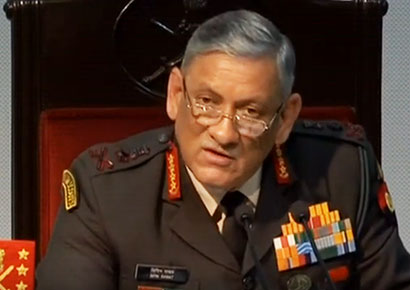India army chief won’t allow LGBT personnel despite Supreme Court
 Four months after homosexuality was made legal in India, the chief of the country’s army has shockingly refused to accept openly LGBT personnel.
Four months after homosexuality was made legal in India, the chief of the country’s army has shockingly refused to accept openly LGBT personnel.
On Thursday, Army Chief Bipin Rawat made his position on the matter clear at a press conference in New Delhi. “We are conservative. We have neither modernised nor westernised,” he insisted. “LGBT issues in the army, these are not acceptable…”
In September last year, India’s Supreme Court ruled that the colonial era Section 377 law criminalising consensual adult homosexuality was unconstitutional and discriminatory. The court found that “sexual orientation is natural and people have no control on it.”
General Rawat, however, believes that the ruling is not necessarily applicable to the army. He told journalists that “we will still be dealing with them [LGBT people] under various sections of the Army Act,” and that “[it] will not be allowed to happen in the Indian Army.” The act bans homosexuality and adultery with jail terms of up to 10 years.
Rawat said that while the military was not above the law, “when you join the Indian Army, some of the rights and privileges you enjoy are not what we have. Some things are different for us…”
According to the Hindustan Times, Rawat’s comments come shortly after the introduction of a bill to amend the Army Act, the Air Force Act and the Navy Act. If passed, the bill would insert the following line in the acts: “Nothing in this section shall apply to consensual sexual acts committed between adults, whether of the same gender or of different genders.”
More than 50 countries, including South Africa, currently allow gay or LGBT personnel to serve openly in the military. Despite unfounded warnings of loss of discipline and chaos, none have suffered any negative consequences from having inclusive recruitment policies.
The US currently allows LGBT staff to serve but President Trump has demanded that transgender personnel be restricted; an order that continues to be challenged in the courts.
Leave a Reply